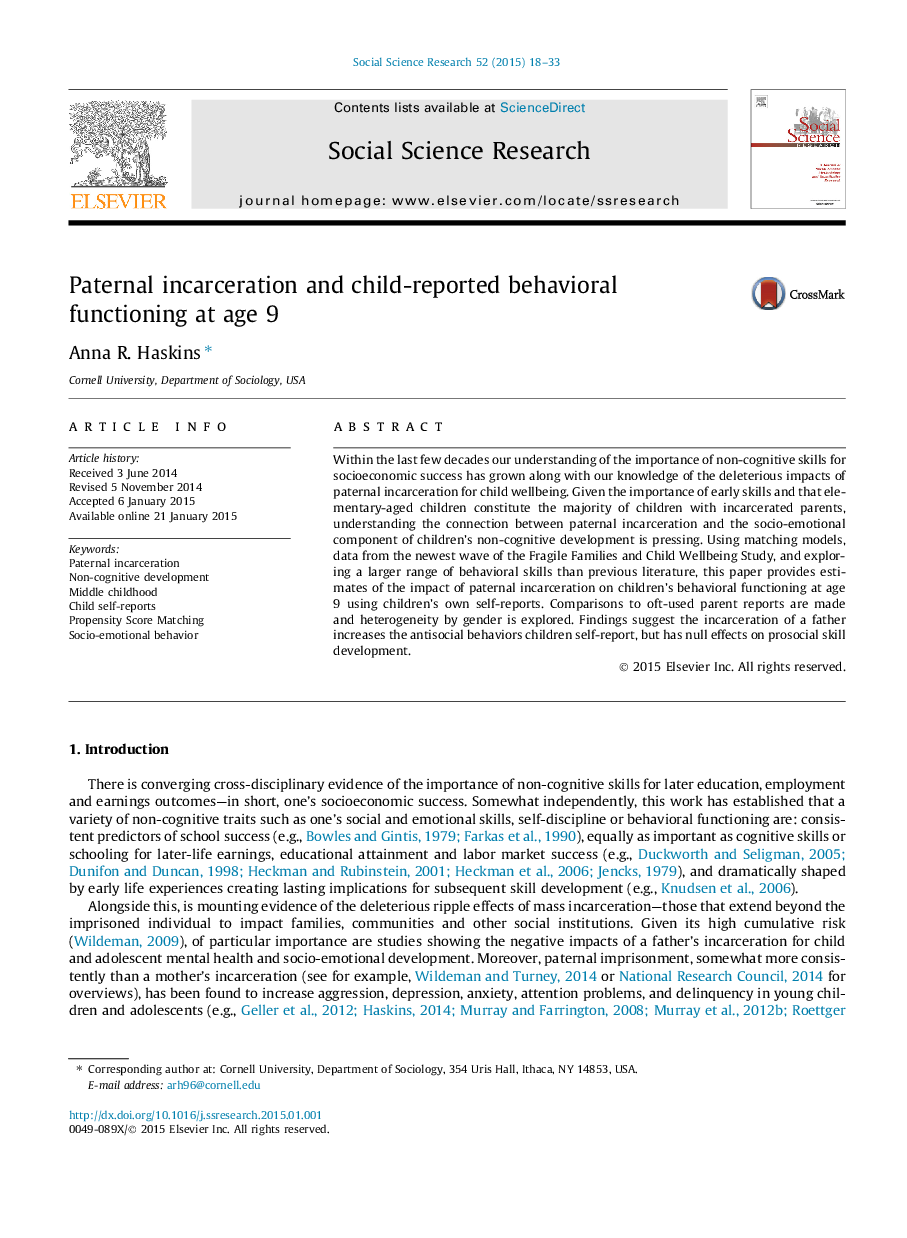| Article ID | Journal | Published Year | Pages | File Type |
|---|---|---|---|---|
| 955683 | Social Science Research | 2015 | 16 Pages |
•Examines the impact of paternal incarceration on child behavior at age 9.•Explores effects for both pro- and antisocial behaviors.•Employs novel child self-reports and compares to oft-used parent reports.•Finds paternal incarceration harms behavioral development into middle childhood.•Incarceration increases antisocial behaviors but has null effects on prosocial skills.
Within the last few decades our understanding of the importance of non-cognitive skills for socioeconomic success has grown along with our knowledge of the deleterious impacts of paternal incarceration for child wellbeing. Given the importance of early skills and that elementary-aged children constitute the majority of children with incarcerated parents, understanding the connection between paternal incarceration and the socio-emotional component of children’s non-cognitive development is pressing. Using matching models, data from the newest wave of the Fragile Families and Child Wellbeing Study, and exploring a larger range of behavioral skills than previous literature, this paper provides estimates of the impact of paternal incarceration on children’s behavioral functioning at age 9 using children’s own self-reports. Comparisons to oft-used parent reports are made and heterogeneity by gender is explored. Findings suggest the incarceration of a father increases the antisocial behaviors children self-report, but has null effects on prosocial skill development.
